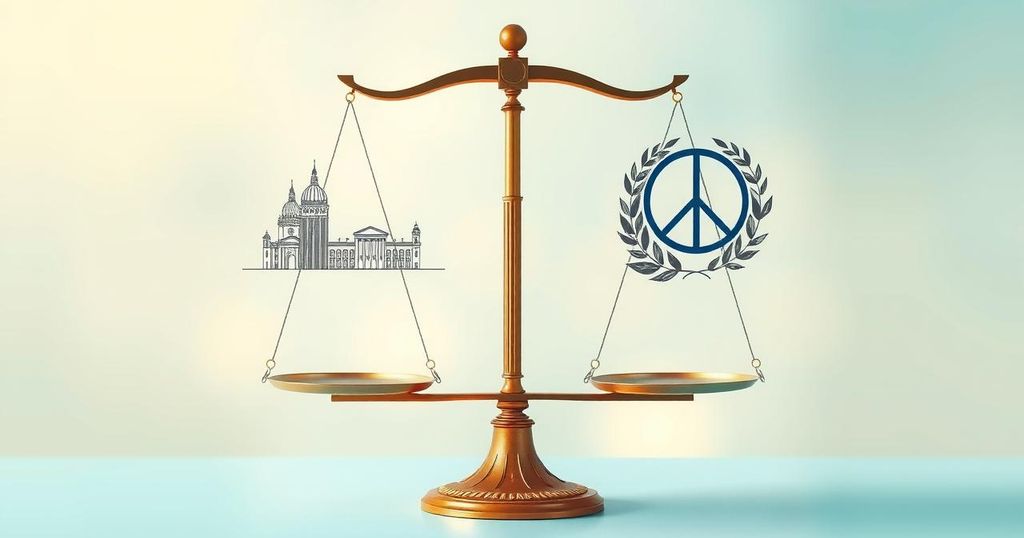The Arab League has endorsed Egypt’s $53 billion plan for Gaza, focusing on reconstruction and humanitarian aid, while Trump’s controversial proposal to evacuate Gaza residents has provoked ridicule. The Egyptian plan, with plans for safe zones and significant investment, has garnered regional support but faces skepticism from U.S. officials. Overall, the plans reflect different strategies for addressing Gaza’s future.
On March 4, the Arab League convened in Cairo to discuss Egypt’s comprehensive plan for Gaza, which is estimated to cost around $53 billion. This detailed 112-page document emphasizes emergency relief, the reconstruction of infrastructure, and fostering long-term economic growth. While the conference endorsed this initiative, subsequent discussions will elaborate on the specifics of implementation.
On February 4, President Donald Trump proposed transforming Gaza into a “Riviera of the Middle East.” This ambitious plan envisioned relocating approximately two million locals to nearby Arab nations. The proposal elicited reactions of astonishment and ridicule across the Arab world and internationally, with some commentators suggesting it aimed to provoke a stronger Arab response to Gaza’s situation.
Following Trump’s announcement, Egypt swiftly began developing an alternative plan that dismissed the need for population relocation. The Egyptian scheme proposes establishing secure areas within Gaza for Palestinians while construction firms work on rebuilding the region’s crucial infrastructure. This initiative aims to create tens of thousands of jobs for Gazans, facilitating their economic recovery.
During the summit, Egyptian President Abdel Fattah al-Sisi emphasized the solidarity among Arab nations core to the reconstruction efforts, stating it allows Palestinians to remain in their homeland. He expressed enthusiasm about collaborating with Trump and the international community to achieve a just resolution to the Palestinian issue.
The Egyptian plan will unfold over three phases across five years, starting with a six-month recovery period aimed at creating safe zones for 1.5 million displaced individuals. The first phase will require approximately $3 billion for 200,000 prefabricated units and 60,000 refurbished homes. The second phase, estimated to cost $20 billion, focuses on rebuilding housing and utilities. The final phase will involve constructing infrastructure such as an airport and ports, budgeted at $30 billion.
Moreover, the governance strategy incorporates a temporary mission to manage humanitarian assistance, excluding Hamas until a reformed Palestinian Authority is in place. Despite Hamas’ exclusion, they have endorsed the Egypt-led plan as a sign of Arab unity with the Palestinian cause.
In the summit’s concluding statement, the Arab League urged the UN Security Council to deploy peacekeeping forces in Gaza and commit to an international conference aligning with the UN for reconstruction discussions. Funding is anticipated from affluent Gulf nations, and a trust fund managed by the World Bank will be set up to oversee financial contributions.
The subsequent phase aims at establishing a sovereign Palestinian state, with connectivity between the West Bank, east Jerusalem, and Gaza deemed a priority. Trump’s previous plan, “Peace to Prosperity,” proposed creating a sovereign Palestinian state and enhancing Gaza’s territory, which had a mixed reception among regional leaders, including some support from Saudi Arabia and Egypt.
The Egyptian Foreign Ministry underscored its recognition of the necessity to consider the U.S. initiative to facilitate resolution of the Palestinian issue. This shows an openness to dialogue within the context of achieving peace for the Palestinian people. Conversely, Trump’s vision for Gaza has met with skepticism from U.S. and Israeli officials, with some asserting Egypt’s plan ignored Gaza’s current inhabitable conditions.
Despite initial dismissive responses from U.S. officials, support for Egypt’s initiative emerged from UN Secretary-General Antonio Guterres at the Arab summit. Guterres expressed strong endorsement for the Arab-led efforts in Gaza’s reconstruction, signaling potential pathways for future cooperation.
In summary, while both Trump’s and Egypt’s proposals for Gaza showcase differing methodologies and objectives, Egypt’s plan appears to have significant Arab League backing and international endorsement amidst a complex regional landscape. The evolving dynamics suggest an openness to dialogue and the potential for multilateral engagement moving forward.
In conclusion, the contrasting plans for Gaza exemplify differing approaches to resolving the ongoing crisis. Egypt’s comprehensive plan, focused on reconstruction and humanitarian aid, has garnered significant support from the Arab League and international bodies, while Trump’s controversial concept faces skepticism from both U.S. and Israeli perspectives. The acknowledgment of the need for negotiations indicates a willingness among various stakeholders to engage in discussions aimed at achieving peace and stability in the region.
Original Source: www.jpost.com






